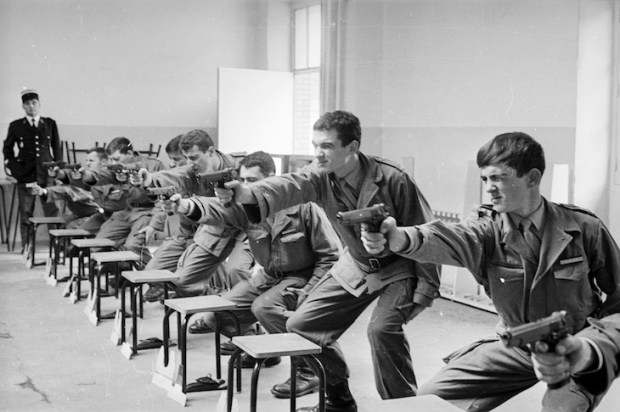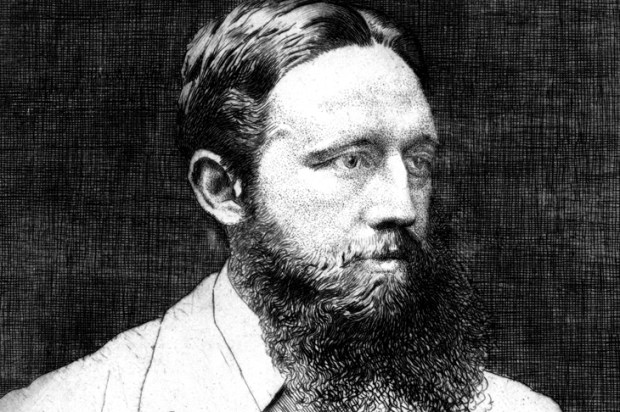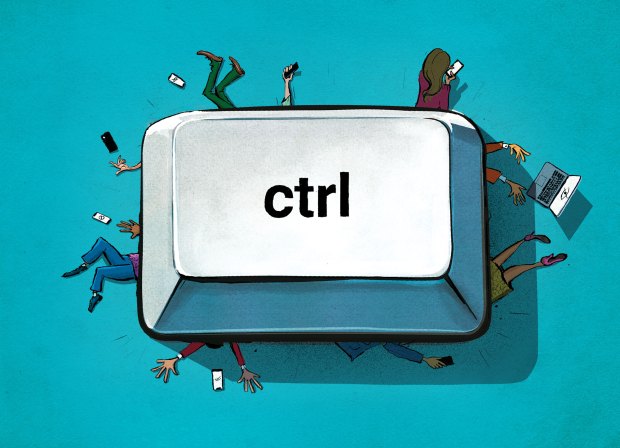If you’ve ever had a text or email thread spiral wildly and unexpectedly out of control or clocked a couple having a blank-faced argument in Tesco or a mother remonstrating with her toddler even though you couldn’t hear the words exchanged, then you understand the importance of the human voice. Command of tone, timbre, pitch — the how, not the what, of communication — is at once the most natural and instinctive of skills, common to every infant and its parent, and the most fetishised, finessed and, of course, monetised. A whole industry, and a lucrative one at that, exists to transform the human voice from tool to product, from nature to nurture, from prose to poetry.
Nick Coleman’s Voices aims to analyse that process, to ask why some singers set the emotional truths stored away within us vibrating, teach us who we are and change us even as they do, while others merely dazzle and divert, their songs slipping through us without ever touching the sides.
The book’s subtitle, ‘How a Great Singer Can Change Your Life’, establishes the investment that Coleman, a former pop music critic and journalist for NME, Time Out and the Independent, has in the question. But the full extent of his very personal stake only really becomes evident in the epilogue. Overnight in 2007 Coleman lost all hearing in one ear. When, in 2012, his other ear also suffered a near-complete loss, he found himself cut off for many months from sound, something he describes as a ‘necessity’ of life, no different to air or water.
This experience of loss and alienation was elegantly explored in Coleman’s previous book, The Train in the Night, and it’s perhaps with a view to avoiding old ground that he withholds this crucial information here until so late in the day.
But it’s a key that unlocks so much of Voices — its urgency, its autobiographical slant, the heady written style. Coleman’s imagery is dense and relentlessly, sometimes exhaustingly, precise. It’s a style that will delight some and strike others as self-conscious. But when you realise that this isn’t just Coleman sketching music, offering an aide-memoire for his readers or a verbal stop-gap before a trawl through Spotify —that, for Coleman, these words are the music, sonic fragments shored against his aural ruin — it all comes into focus.
The questions that pile up in great precarious heaps around the edges of the introduction — Why do we sing? How do we sing? What does it really mean to listen? What is the relationship between the singing subject and the listening audience? Can you ever perform emotion, or do you have to live it for it to be valid? — are all chapters in their own right, offering a glimpse of the broader book that might have been. But it’s as though, having contemplated the wide-shot, acknowledged its breadth and unwieldy, anthropological complexity, Coleman then retreats to what he knows and does best, the microscopic close-ups of music journalism.
Which isn’t to say that Voices is a bad book. On the contrary, at the level of the individual voice, the individual singer and song, it’s pretty great. Suzi Quatro has ‘serrations in her voice, which seemed to tear the very ether into spittable shreds’; Joni Mitchell’s ‘slippery fight with self-loathing’ yields a woman ‘as narratable as Helen of Troy, but rather less warm to the touch’; while Jerry Lee Lewis’s ‘Mean Woman Blues’ is ‘a muscular arc of rhythm, a… protuberant, hardening, thick-veined blood-thump of irresistible momentum’. (Tumescence is, perhaps inevitably, a recurring theme of the rock section.)
Coleman has a critic’s ability to make you hear through his ears, to take a miniature, three-minute pop track and magnify it into a whole musical world, to find the side window left ajar into songs whose front steps are worn slippery smooth with decades of footfall. Aretha Franklin, Gladys Knight, Roy Orbison, Marvin Gaye, Joni Mitchell, Miles Davis — these are the complicated, eclectic and sometimes unlikely heroes that emerge from this very personal trawl through four decades of popular music. Each brings out Coleman’s best, his passionate verbal precision, his startling high-low cultural collisions. It really shouldn’t be possible (let alone useful) to filter Gaye’s music through Rogier van der Weyden’s ‘The Descent from the Cross’ or Van Morrison through the seventh-century peasant poet Caedmon, but somehow Coleman makes it work.
Weaker are the connecting passages, the episodes where the author dutifully stitches each artist and style into the social fabric of its age, into an ongoing musical continuum. Voices feels like a book of essays, evocative vignettes that sit companionably enough alongside one another without ever really interacting. And then there are the omissions — the sometimes wilful path Coleman cuts through the musical landscape, bypassing Leonard Cohen and Bob Dylan but finding plenty of space for the Shangri-Las — which are bound to drive some readers wild.
But there’s something exhilarating about Coleman’s musical democracy, his refusal to observe traditional hierarchies. Whether you’re Beethoven or Bananarama, you get a fair and equal hearing here, and by the end of the book it’s evident that Coleman hears better and more clearly with half an ear than the rest of us do in a lifetime of two.













